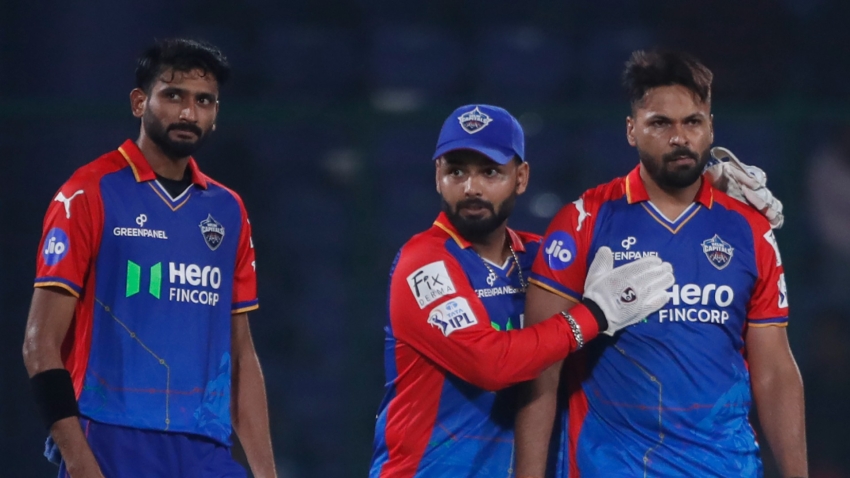Age and injuries have been insufficient roadblocks as James Anderson has set another stratospheric benchmark, unlikely to ever be beaten.
There are few other sportspeople that have given Father Time such a run for their money than the evergreen swing king, who aged 41 years and 223 days and in his 23rd year as an international fast bowler has just bagged his 700th Test wicket in England’s fifth Test against India in Dharamsala.
Only Muttiah Muralitharan (800) and the late Shane Warne (708) have more but Anderson is out of sight among non-spinners and may never be toppled, with closest challenger Stuart Broad retiring last year.
It is doubtful Anderson would be where he is without Broad, who owes just as much of his success to the Lancastrian. The pair are indelibly linked and their partnership fits comfortably alongside McGrath-Warne, Wasim-Waqar and Walsh-Ambrose as one of the best of all-time.
There are those who seek to downplay their achievements, that their records are gilded in home conditions with more modest successes overseas. But statistics can obscure the bigger picture and Anderson was instrumental in England’s two greatest away victories in a generation.
Sir Alastair Cook took the plaudits with his insatiable appetite for runs in the 2010/11 Ashes but the leading wicket-taker was Anderson, whose immaculate control and key breakthroughs led to him being described as “the major difference” by Mahendra Singh Dhoni when England beat India in 2012 in a series where all other quicks floundered.
Sir Ian Botham’s 383 wickets are long since in the rear view mirror and much like the great all-rounder’s fine wines, Anderson kept getting better with age. Since his 30th birthday he has taken 432 wickets at 24.13 while that average sinks to a scarcely believable 22.86 after turning 35.
Rewind to December 2002, the start of his life with England, and Anderson was a terrorising paceman who swung the ball round corners and possessed immaculate seam control. He made an impression in the 2003 World Cup before taking a five-for on Test debut against Zimbabwe later that year.
His career stalled over the next few years, partly because well-meaning coaches attempting to iron out kinks in his action to prevent stress fractures in his back had the unintended consequence of inducing stress fractures in his back.
He filtered out the bad advice and after being in and out of the side, his and Broad’s inclusion in New Zealand in March 2008 marked a changing of the guard as Matthew Hoggard and Steve Harmison were ushered out.
The connection was not instantaneous and England had to bide their time, but they struck up a union that brought four Ashes series victories between 2009 and 2015 during a golden period in which they also climbed to the top of the Test rankings between 2011 and 2012.
As Anderson’s career has progressed, so too has his meticulous planning to his craft. As his speeds dropped, he focused on a metronomic line and length to constrain batters although he was still capable of producing the odd ‘magic ball’. That was evidenced with his 500th Test scalp as he pegged back the middle stump of West Indies opener Kraigg Brathwaite in 2017 en route to career best figures of seven for 42 at Lord’s.
Afterwards, Anderson admitted to feeling “not quite teary but emotional” – a break from his more natural sullen and occasionally grumpy demeanour.
Apart from one heated confrontation with India all-rounder Ravindra Jadeja in 2014, that hostility was self-contained. Anderson is a more self-effacing and thoughtful character off the field and channels his temper in more productive fashion.
He was part of the England side that reached the 2013 Champions Trophy final but his white-ball career ended two years later after the World Cup omnishambles. Although Anderson never actually retired, he was deemed surplus to requirements even if no other Englishman can better his 269 ODI wickets.
The decision elongated Anderson’s red-ball career. He went on to top the Test bowling rankings on a couple of occasions, breaching the 900-point barrier a few days after he passed 100 wickets at Lord’s in August 2018 – the first paceman to take a century at a single venue. A month later he surpassed Glenn McGrath’s 563 wickets to become Test cricket’s most successful fast bowler.
A chronic shoulder injury, which was a factor in great rival Dale Steyn’s retirement, has impacted his daily routine to such an extent that even just brushing his teeth can prove a burden.
Recurring calf complaints meant he missed almost all of the 2019 Ashes while a broken rib sidelined him after a stellar showing at Cape Town that winter but Anderson remained unbowed through it all.
Being left out of England’s post-Ashes tour of the West Indies in 2022 brought fresh speculation Anderson might finally call it quits but he predictably came back with a vengeance and seems rejuvenated under the leadership of Ben Stokes and Brendon McCullum.
Despite the combination of a poor 2023 Ashes and Broad heading for the hills, Anderson keeps going and has finally joined the 700 club. Warne may now be in his sights – after that, who knows?




























